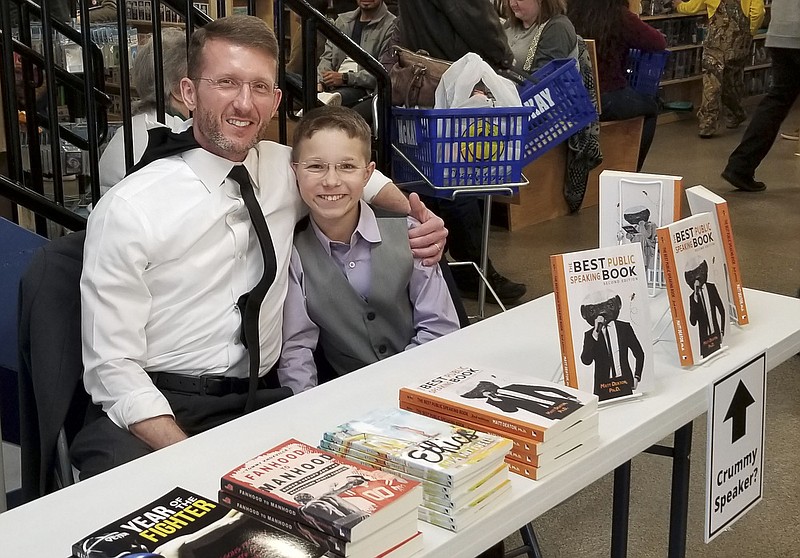Matt Deaton, a 42-year-old East Tennessean, remembers the exact moment when he decided being a rabid college football fan had become too toxic.
It was in the fall of 2014, moments after his beloved Tennessee Volunteers football team had suffered a crushing 10-9 defeat in Knoxville at the hands of the visiting Florida Gators. It was the 10th consecutive Florida win in the series, and Deaton was emotionally spent.
As he strode angrily out of Neyland Stadium that day, Deaton barged through the Florida band shouting "Out of my way! Out of my way!" The Florida band, it seems, had ticked him off royally by playing "Rocky Top" - the Tennessee anthem - inside the stadium.
When a member of the band challenged his boorishness, he offered to deposit the Florida drummer's drumsticks where the sun doesn't shine.
And then, almost immediately, he felt a wave of guilt.
"How could a grown man get that upset over a game he wasn't even playing?" Deaton writes in his new book, "Fanhood to Manhood, Shock Therapy for the Recovering Sports Fanatic."
Deaton's book - available on Amazon under his pen name Tommy Knoxville - is a do-it-yourself manual for people who decide they have surrendered too much of themselves to a sports team.
"It robs them of living lives of their own," Deaton, who has a doctorate and teaches college classes online, said in an interview this week.
Ultimately, Deaton, a lifelong Vols fan and UT graduate, used his 2014 meltdown to distance himself from Tennessee football. He gathered up all his Big Orange gear and put it in a box in his garage. He stopped going to games, and even stopped watching the Vols on television.
A philosophy teacher, Deaton used his self-imposed exile from Vols Nation to look for new passions - which ultimately included boxing and martial arts fighting.
Interestingly, he thinks too many fans - men in particular - conflate their team's success or failure with their own self worth. He decided the antidote was to find something fun - and slightly dangerous - to replace his overindulgence in Vols' sports.
Of all the subplots in the widening coronavirus crisis, our national time-out from sports is one of the most interesting. Deaton suggests that sports fans take this time to reflect.
"I would liken this to alcoholics during Prohibition," Deaton said. "They could use it as opportunity to sober up - or they could go out to find a bootlegger."
Deaton says that while sports fandom can be a healthy diversion for some people, others, like him, fall into a deep addiction.
He was one of those fans who chalked up landmark Vol triumphs as personal victories. At the pinnacle, there was the improbable Sugar Bowl Victory over the University of Miami in 1986 and the Vols' national championship after the 1998 season.
How do you know if your fandom has become unhealthy? Deaton says your social interactions will tell the story.
Maybe you've miss a kid's birthday party to watch a big game, or tuned out a child who is trying to talk to you during a game broadcast, or check scores during a wedding.
For those serious about curbing a sports addiction, Deaton suggests a cut-and-paste approach.
If you set aside your fandom for a time, why not coach a youth sport or take up a new hobby yourself? For Deaton, it was boxing and coaching his kids' soccer teams.
It helped Deaton to think of fandom as glorified cheerleading. Mentally, he equated his former Vol Mania with putting on a skirt and shaking pompoms. It was like aversion therapy.
While he has attended a couple of Vol games in recent years, Deaton said he maintains a healthy emotional detachment from events on the field.
"Today, I spend football season doing my own thing," he said, "not worried the least about athletic strangers on Neyland Drive. My best to them, just not my concern."
Contact Mark Kennedy at mkennedy@timesfreepress.com or 423-757-6645.
